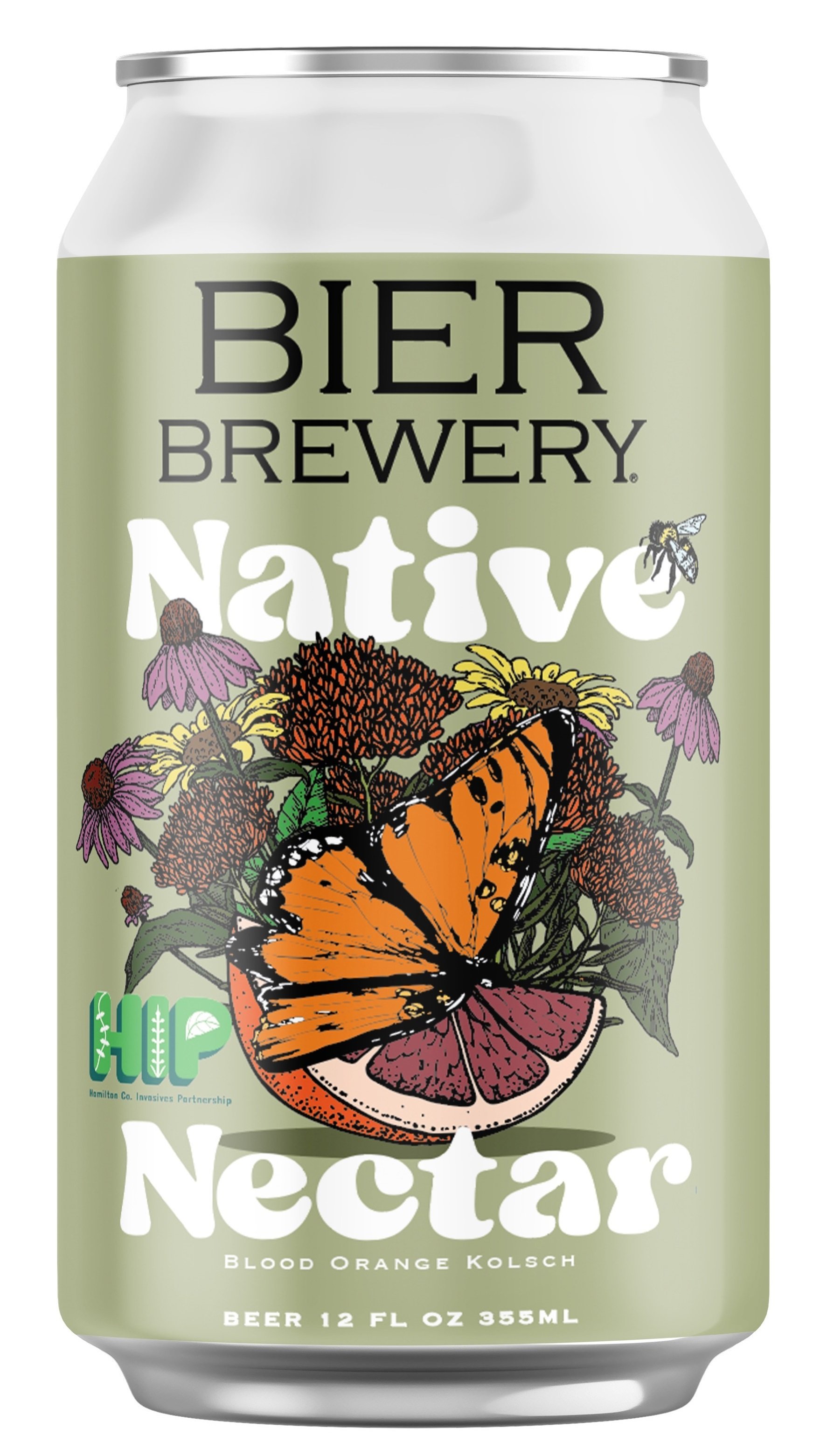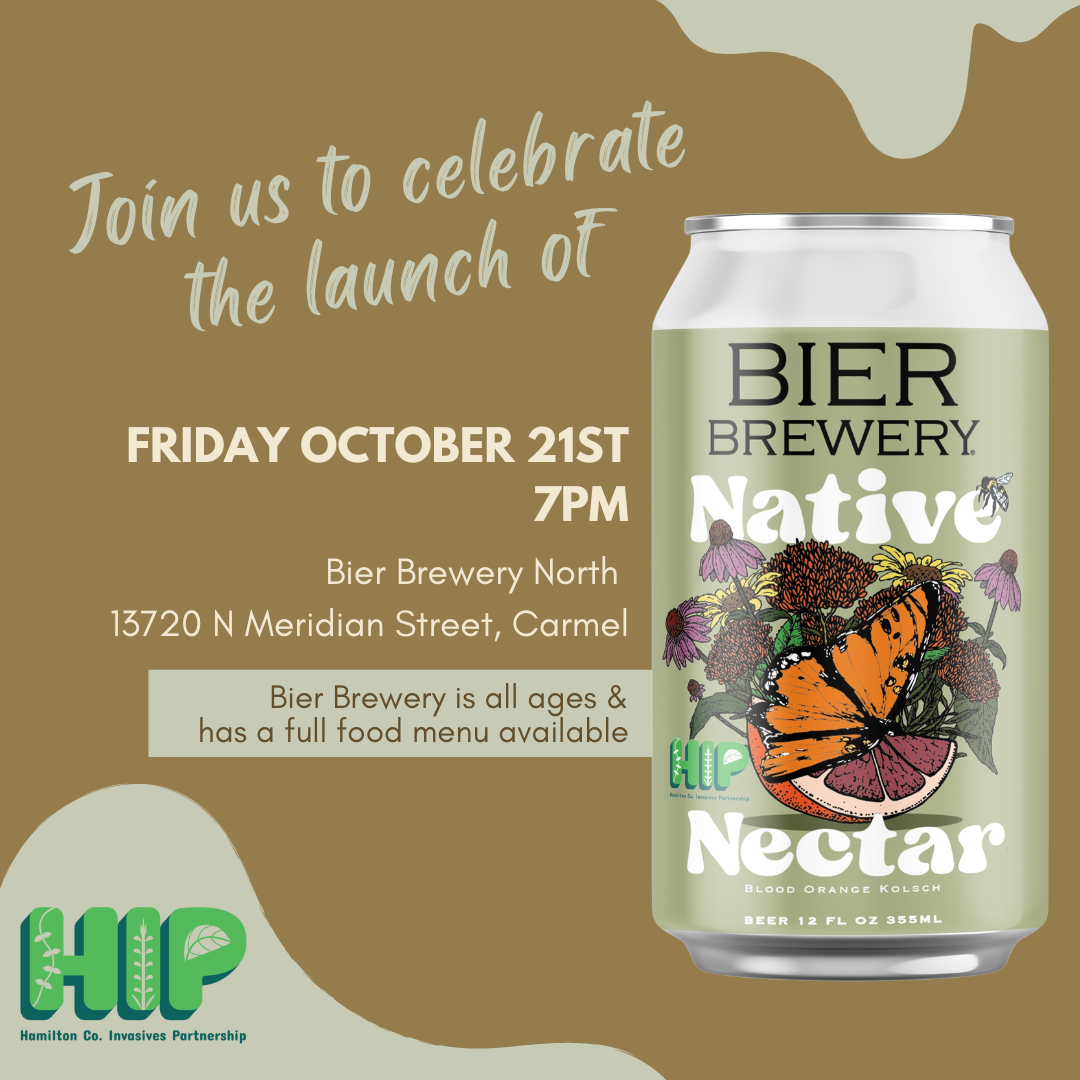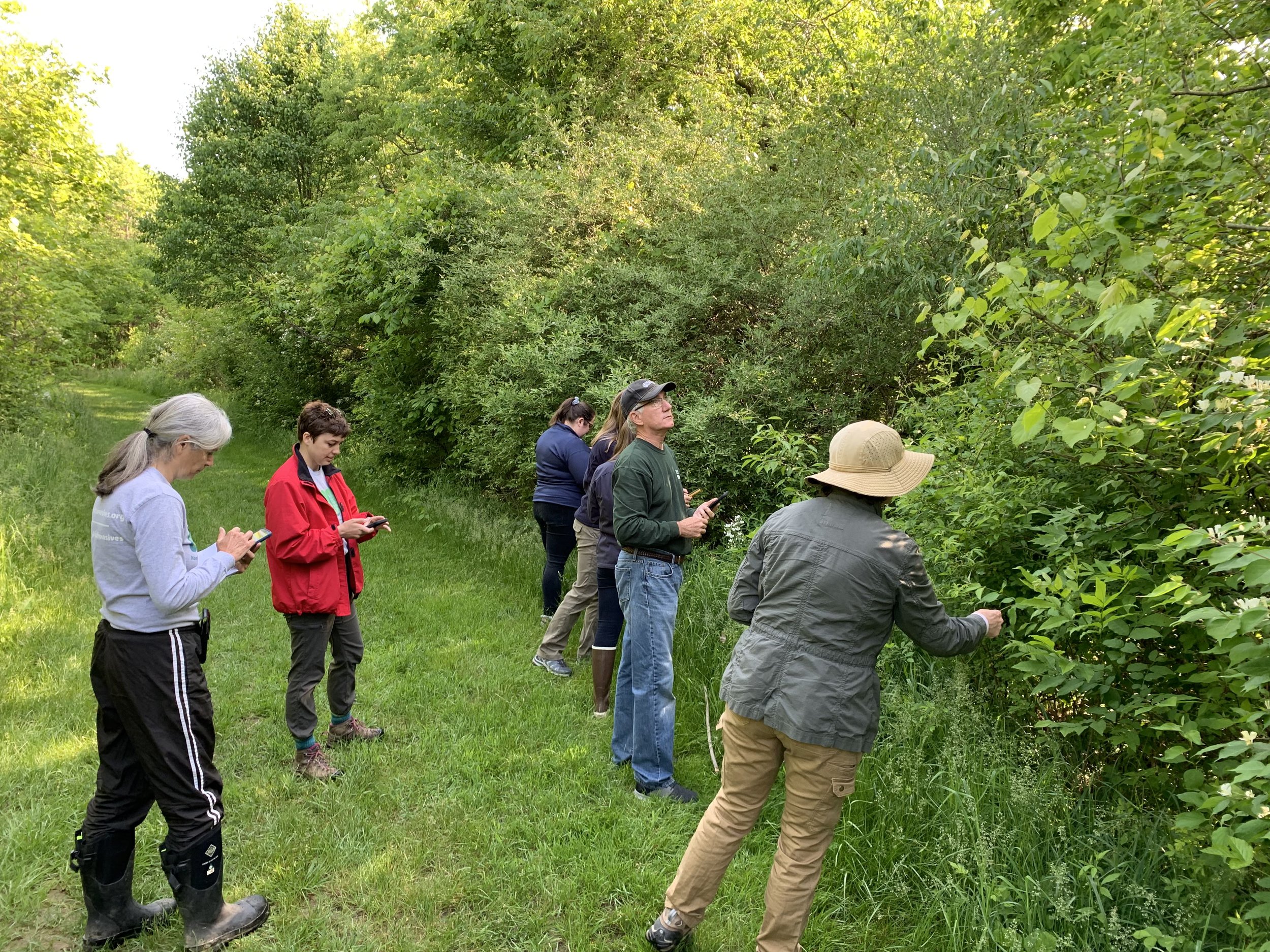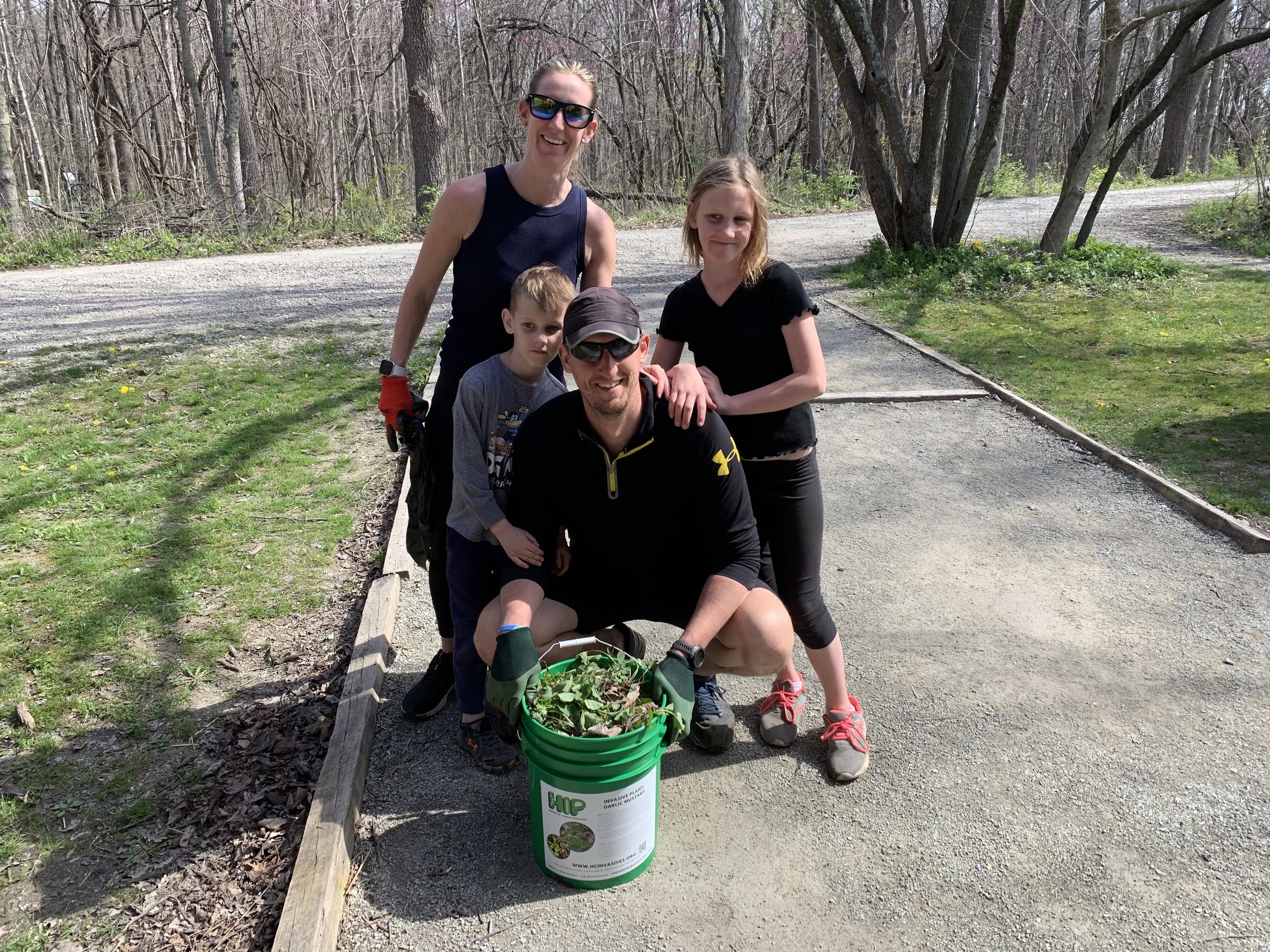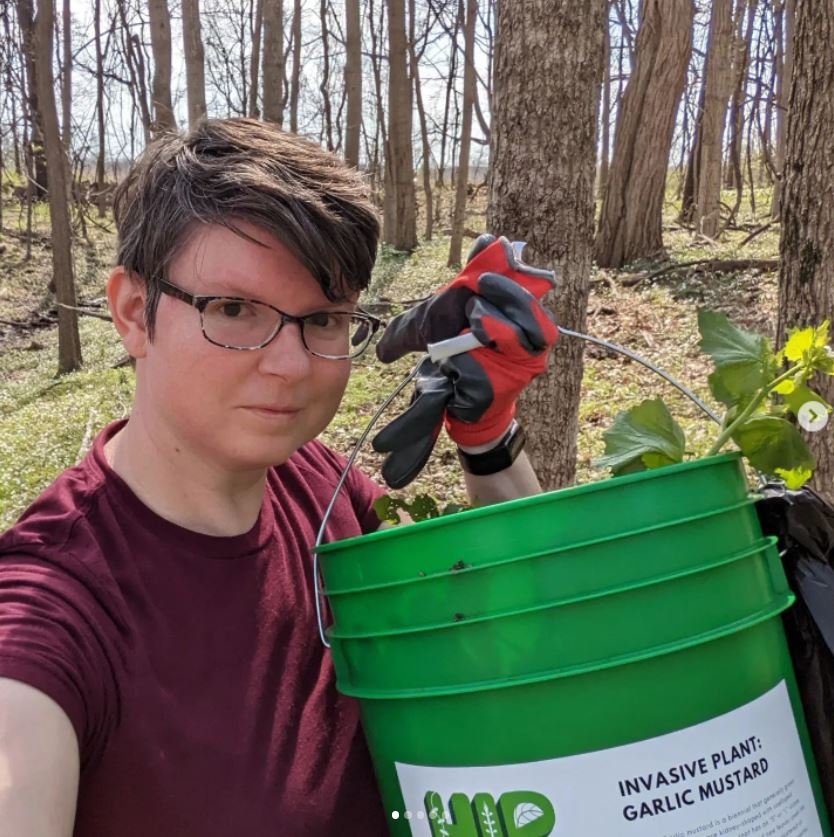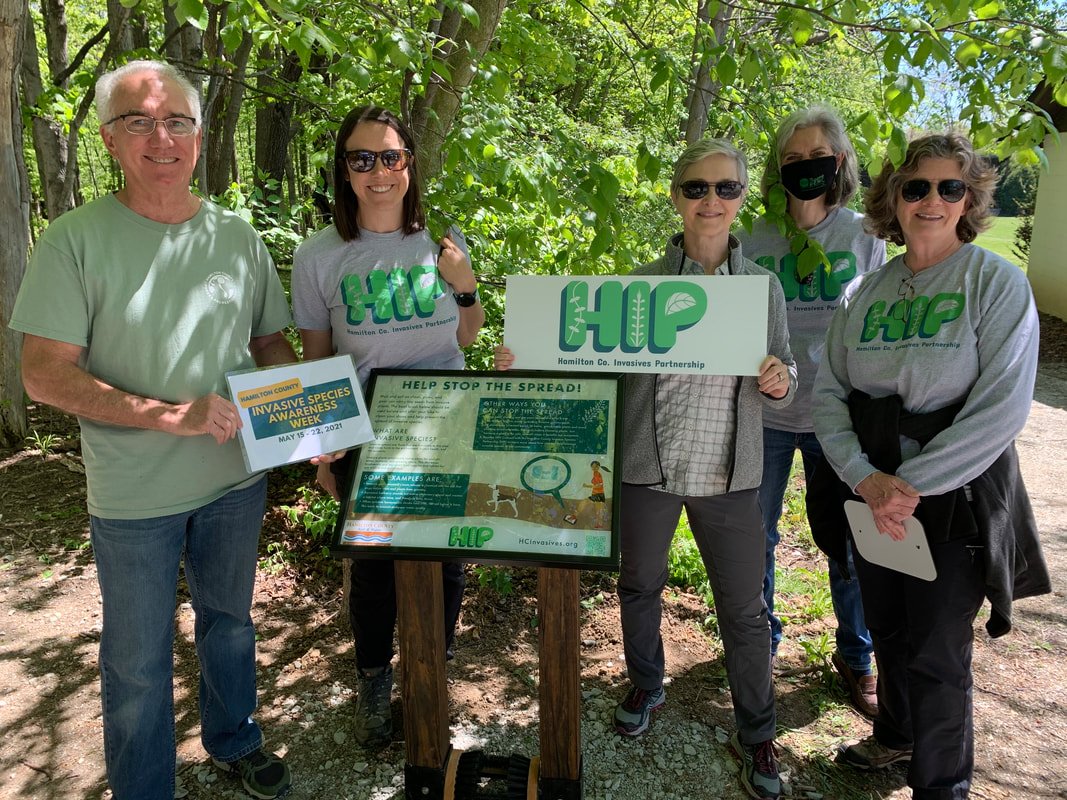Hamilton County Invasives Partnership (HIP): fighting invasives with outreach, education, mapping, and beer!
SICIM Email
By Claire Lane
So much has been going on in Hamilton County! We wanted to share some of the amazing things going on that the Hamilton County Invasives Partnership (HIP) has been working on.
Collaboration with Bier Brewery:
HIP is fighting invasive species 12 ounces at a time! HIP is very excited to share that ‘Native Nectar’, a collaboration beer between HIP and Bier Brewery, will be released in mid-October 2022. Native plants will be featured on the can as well as a message encouraging imbibers to be part of the invasive species solution in their community. The HIP logo and website will be featured as well. A portion of the proceeds from the sale of the beer will go back to HIP, supporting invasive species management efforts in Hamilton County. You will be able to find the beer at both Bier Brewery locations (Indianapolis and Carmel) as well as many Central Indiana liquor stores. The style of the beer will be a blood orange Kolsch.
HIP and the Central Chapter of the Indiana Native Plant Society (INPS) will be hosting a social and celebration on October 21st in coordination with the INPS Annual Conference being held on the 22nd in Carmel. We hope you will join us at Bier Brewery in Carmel (13720 N Meridian St, Carmel, IN) at 7pm on the 21st. You can learn more about the conference and register here.
GIS System:
HIP has been staying busy in 2022 tweaking ongoing programs and creating new partnerships and endeavors. Starting the first week in January, HIP put the pedal to the metal working with partners to develop a county geographic information system (GIS) platform to track invasive species surveys, species disbursement, and treatment throughout the county. The system was built via collaboration with the Hamilton County GIS department and based on a system previously used by Carmel Clay Parks and Recreation. The North American Invasive Species Management Association (NAISMA) Mapping Standards guidelines were utilized as well.
The system went live in April but was only able to come together so quickly due to the commitment from HIP member organizations who believed in the potential and importance of a countywide system. With eight parks departments in the county, the ability to share information is critical. Through this system, parks departments, partner organizations, and trained volunteers can track invasive species survey information including species, density, life stage, and more. Treatment data can also be collected including geolocated tracking of primary species treated, primary and secondary treatments including treatment method, chemical type, rates, wind direction and speed, temperature, and the time spent treating each polygon or data point. Early detection and rapid response species entered into the system generate an alert to property managers and HIP leadership. Photos can be uploaded as well. Data can be entered in the field via the Field Maps (ESRI) app on a smartphone or tablet. As we look ahead on this project, priorities include syncing data with EDDMapS and providing support to smaller parks departments and trained volunteers in use of the system. Parts of the collected data are available for public viewing via an online portal.
Learn more here: https://www.hcinvasives.org/invasive-species-gis-program.html
GIS training at Raymond Worth
#invasivesbucketchallenge
As part of our second annual Hamilton County Invasive Species Awareness Week, HIP worked with local partners to encourage citizens to “fill up to fight invasives” with an invasives bucket challenge.
Individuals were encouraged to engage in invasive species management and fill a bucket or bag with removed invasives. Participants were encouraged to post a photo of their invasives filled bucket on their social media using the hashtag #invasivesbucketchallenge for a chance to win prizes. Participants could also tag friends or family members to challenge them to fill a bucket with invasives as well. Special HIP buckets with invasive garlic mustard information were made available for free from the Hamilton County Soil and Water Conservation District in Noblesville and other participating partners.
Buckets were distributed to landowners, to Master Gardeners, and to partner organizations. Fishers Parks Department used buckets as part of their Weed Wrangles while Noblesville Parks and Recreation placed the buckets at trailheads for trail users to use to collect garlic mustard. Overall, the buckets themselves where quite popular but engaging people for the social media aspect was challenging. It just takes one post or spark to make something go viral, but we didn’t quite get there this year. In the end, we believe the buckets were a worthwhile educational and functional tool.
Learn more here: https://www.hcinvasives.org/invasivesbucketchallenge.html
Boot Brush Stations:
HIP continues to expand its network of Boot Brush Stations. 17 stations have (or are currently being) installed. HIP purchased stations directly from the manufacturer and worked with our local county tourism office to create customized signage. Funding for the stations included internal HIP funds, a 2021 SICIM grant, Hamilton County Tourism, and a contribution from the MIBOR Realtor Association. The stations have been a great ‘easy win’ for HIP and the host locations allowing for passive and accessible invasives education.
Learn more here: https://www.hcinvasives.org/bootbrush.html
Trade in program:
HIP is offering a Native for Invasives Trade In program for the second time this year. In 2021, we offered 3 choices of 5-gallon native trees as replacements and had enthusiastic participants but did not exhaust our available supply. This year, we opened applications earlier and integrated the program into our annual fall native tree sale. This year, applicants have until September 18th to apply. The application is a web form where landowners submit relevant information and photos and request up to 3 native trees. Approved applicants will receive a code that can be used to place an online order in the tree sale. Participants can choose from any of the 48 species available in the sale. The replacement trees will be 3 gallon but, we believe the ability to choose a species that is a perfect fit for your planting area will drive more interest. We’re also hopeful that participants will add a few more trees to their order when they claim their free tree.
Learn more here: https://www.hcinvasives.org/trade.html
If you have any questions about these or other HIP programs, feel free to reach out to claire.lane@hamiltoncounty.in.gov.
